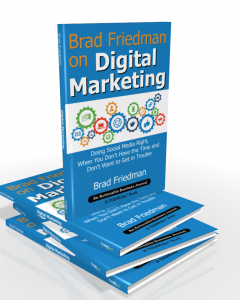Every business owner is looking for SEO tips. It's getting harder and harder to get our website found via organic searches. So, SEO, or search engine optimization, has become very important. The actually language you use is also very important in keeping or driving away current customers, leads and prospects. You can convey the same information in a conversational, technical, dry, forceful or enthusiastic way. But the way in which you write needs to resonate with your target audience.
For example, a conversational style works with most demographics. You can use it with young people or old ones, professionals or artists, men or women.
But a technical style will only work for other people who have knowledge about the subject, not the layperson. A forceful style might work with people who are already enthusiastic about the subject but is likely to drive away those who are a bit shy. An enthusiastic style will work to get a person interested in a topic which they might not actually find appealing. Or it might come across as too forceful.
 So the style you choose can be quite important in determining the success of your website, blog and social media pages. Here are three SEO mistakes you can avoid, which involve the tone in which you write:
So the style you choose can be quite important in determining the success of your website, blog and social media pages. Here are three SEO mistakes you can avoid, which involve the tone in which you write:
Using Slang in an Unnatural Way
Sometimes, when it comes to marketing, companies try too hard. So, instead of attracting new customers, they turn them off. This can happen when you try to speak like your audience.
If your audience is young and hip, you might be trying to use the same slang they use. This works if it comes naturally to you. If you belong to the same age group and the same subset as your audience, then you probably speak the same way they do. But if you're older and just pretending to be comfortable saying “yo” or “whatevs” or “laters,” then it's going to come through to your audience. Your language will sound forced.
Instead, it's best to go with a conversational sound. Just write Facebook comments or Tweets in the way you would speak to someone you know. The other option is to hire someone to do your internet related writing for you. Just come up with a profile of your ideal customer and hire someone who fits that profile. That way, when they use slang, it will come to them naturally.
Using Jargon
Another mistake people make is trying too hard to impress their audience with jargon. Jargon is language you use within the industry—terms that others who work in the same field might be familiar with.
For example, in the digital marketing arena, SEO, content marketing, inbound marketing etc. are all examples of jargon. This doesn't mean you can't use them at all but don't expect your customer to instantly know what they mean. You might have to do some explaining. Using terms that the layperson doesn't understand in an effort to impress them can be a turnoff.
Using Complex Sentence Structures
Another mistake people make is using very complex language, such as this: “In the digital era, a combination of outbound and inbound methods, although likely to be profitable, has certain disadvantages, such as the conflict likely to occur when your outbound message promises much more than your inbound capacity will allow.” Wow! That's a mouthful!
Although this sentence is grammatically correct, it's way too long. By the time the customer reaches the end of it, they've already forgotten what was at the beginning. And, what does the sentence really mean? It's obvious the complexity of the sentence is just meant to impress the consumer. But it's more likely to turn them off.
Once again it's better to go with a conversational tone. And when people have a conversation, they use shorter sentences and fewer SAT words! Remember, Google has told us it want to make search results relevant to the searcher. This means, in part, they will be serving up results that match the language used by searchers. The language on your website needs to match the language used by searchers, if you want to appear in search results.
The tone you use to attract customers is as important as your content. Sometimes, your content may be good but your tone might turn your customers off. In order to avoid this happening, it's best to be conscious of the tone you're using and get someone who understands your target demographic to write your content for you.
Contact us for more great tips on using the right tone for SEO.









